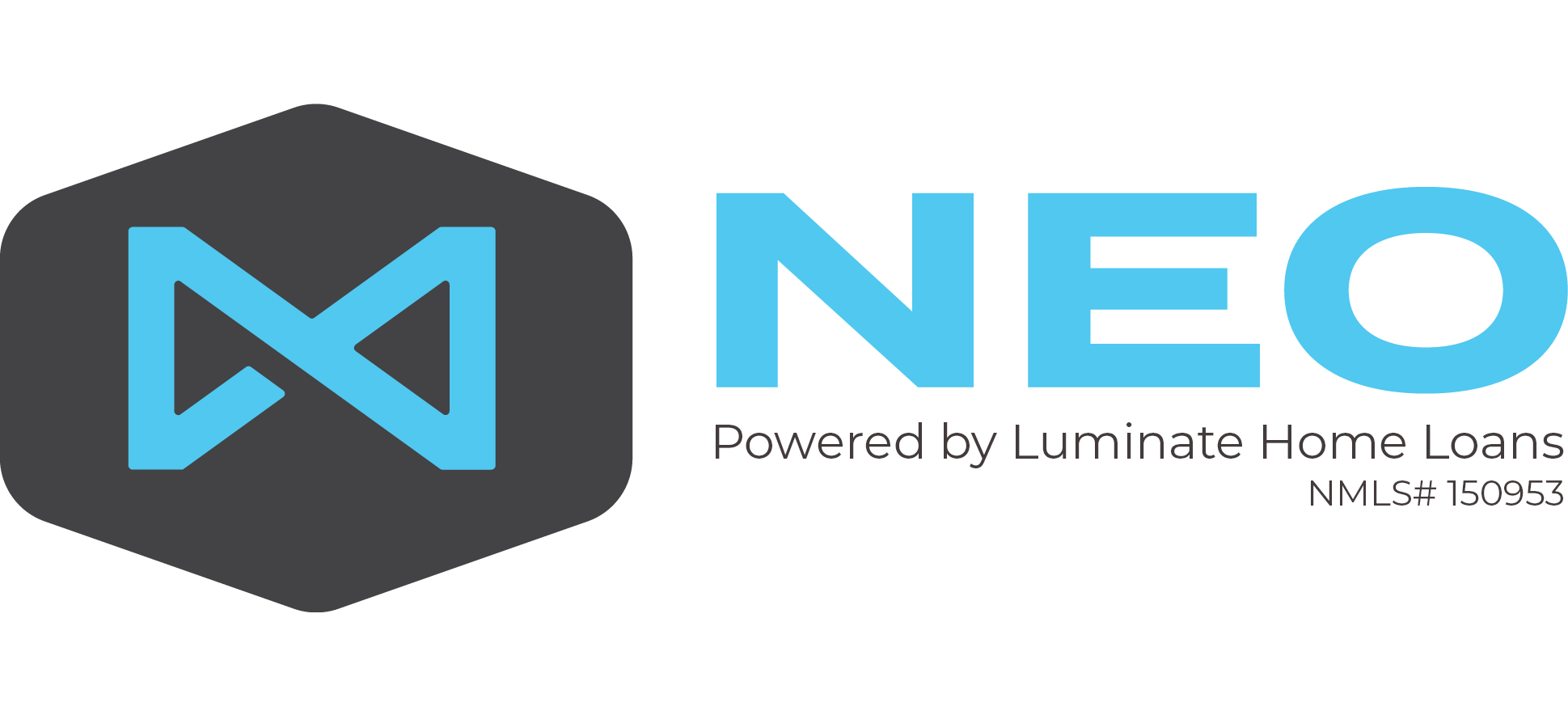
Trying to figure out the best mortgage can be a bit like going through a maze blindfolded. You know where you want to end up (buy a home) but you don’t know how, or the best way, to get there.
I’m going to help you by comparing the various mortgage options into a simple and easy format for you to be able to identify which is best for you.
Four Mortgage Options
There are four major mortgage loan options that exist:
That’s it. You may have heard of other options but they fit into one of these four buckets.
For example a jumbo loan is just a type of conventional loan.
Reverse mortgages…just another type of FHA loan.
203k, yep FHA.
Rural Development? Just another name for USDA.
Let’s start with the option fewest have access to…that’s VA.
VA Mortgage

To qualify for VA financing you must have benefits from being in the military, or as a surviving spouse.
Why is VA so great? Consider these benefits of a VA mortgage:
- 0% Minimum Down Payment
- No Monthly Mortgage Insurance
- No Income Limits
- No Geographical Limits
Amazing, right?!
VA Funding Fee
Although VA does not have any monthly mortgage insurance it does have an up-front cost called a Funding Fee.
The amount varies based on some different factors but here is the VA Funding Fee table for quick reference:
Regular Military
| Down Payment | 1st Time Use | Subsequent Use |
|---|---|---|
| 0.00% – 4.99% | 2.15% | 3.30% |
| 5.00% – 9.99% | 1.50% | 1.50% |
| 10.00% or more | 1.25% | 1.25% |
Reserves or National Guard
| Down Payment | 1st Time Use | Subsequent Use |
|---|---|---|
| 0.00% – 4.99% | 2.40% | 3.30% |
| 5.00% – 9.99% | 1.75% | 1.75% |
| 10.00% or more | 1.50% | 1.50% |
VA Underwriting
VA mortgages utilize Fannie Mae or Freddie Mac’s computerized underwriting systems as a tool to assist mortgage underwriters to assess qualifications and determine documentation needed to approve VA loans.
USDA Mortgage

USDA, sometimes referred to as Rural Development or RD for short, is also a very good loan program offered by the United States Department of Agriculture.
Here are the benefits of USDA:
- 0% Minimum Down Payment
- Lower Monthly Mortgage Insurance (as compared to FHA & Conventional at minimum down payments)
USDA has a couple major restrictions that will disqualify most people including:
- Geographical Restrictions
- Income Limitations
USDA Property Requirements
To determine if you would be eligible based on the area you are considering a home purchase USDA has a property lookup tool found here. After looking up a particular address you will be shown whether it is eligible:

USDA Income Limits
USDA has an income eligibility lookup tool to determine if you would meet the income limits. Income limits will vary based on several factors as you can see here:

USDA Mortgage Insurance
If you meet the property location and income eligibility for USDA mortgage financing then you might be curious about what the mortgage insurance costs look like. Well, USDA has two forms of mortgage insurance:
Guarantee Fee is the up-front mortgage insurance on USDA loans. Guarantee Fee is 1% of the full loan amount.
USDA’s Annual fee is their version of monthly mortgage insurance. The Annual Fee is .35% and is calculated annually and paid monthly. For example, a $100,000 mortgage balance would have an Annual Fee of $350 ($100,000 X .35%) which would be paid monthly in the amount of $29.17 ($350 / 12 mo).
USDA Underwriting
Lastly, USDA mortgages utilize the computerized underwriting system known as GUS or Government Underwriting System. GUS is not a replacement of a human underwriter but instead a tool used by the underwriter to assess qualifications and determine documentation requirements.
FHA Mortgage

FHA, or Federal Housing Administration, is a great mortgage option for many people buying a home.
Here are some of the benefits of FHA financing:
- 3.5% Minimum Down Payment
- Lower Minimum Credit Score Requirements (as compared to Conventional and USDA)
- Higher Debt-to-Income Ratios (as compared to Conventional and USDA)
FHA Mortgage Insurance
FHA’s up-front mortgage insurance premium (UFMIP) is always 1.75% of the loan amount.
This is why FHA can be a great option for those with lower credit scores compared to Conventional mortgages.
Here is a chart which shows how FHA mortgage insurance changes as you increase your down payment on a 30 year fixed mortgage with a loan amount under $625,500:
| Down Payment | Mortgage Insurance Premium | Duration |
|---|---|---|
| 3.50% – 4.99% | .85% | Full Mortgage Term |
| 5.00% – 9.99% | .80% | Full Mortgage Term |
| 10.00% or more | .80% | 11 Years |
Mortgage insurance rates in the chart are annual amounts. In other words, .85% is the annual cost as a percentage of the outstanding loan balance calculated each year and paid monthly. For a $100,000 loan balance that would result in an annual mortgage insurance cost of $850 ($100,000 X .85%) which is paid monthly in the amount of $70.83 ($850 / 12 mo).
FHA Loan Limits
You should also be aware that FHA does have loan limits. The loan limits vary by county. If the loan amount exceeds these loan limits FHA would not be and eligible mortgage option.

Another consideration when using FHA mortgages is the property type. Condos must be approved by FHA in order to be eligible for FHA financing. FHA has a lookup tool that can be used to search for approved condominium communities.

FHA Underwriting
FHA utilizes their own automated underwriting system called TOTAL (Technology Open to Approved Lenders) Mortgage Scorecard.
This underwriting system is constantly being updated and improved based on the criteria HUD, the United States Department of Housing and Urban Development, set for FHA mortgages. This tool is used by mortgage underwriters to assess qualifications and determine the documentation requirements HUD has.
Specialty FHA Mortgage Types
FHA has some unique mortgage options for particular situations.
203(k)
FHA 203(k) is a mortgage product that allows you to finance construction costs when purchasing or refinancing a home. If you are considering a purchase and would like to include the costs of those repairs this may be a good option.
There are two types of 203(k) loans depending upon the scope of the repairs to be done to the home:
FHA Streamline 203(k) option is used for non-structural repairs that do not exceed $35,000 in total cost.
FHA Full 203(k) is utilized for everything else – any structural repairs to be done or exceed $35,000 total.
Reverse Mortgage
Reverse Mortgages or Home Equity Conversion Mortgages (HECM) allow those 62 years of age and older to covert your home equity into monthly income.
HUD has a guide to answer the most frequently asked questions in case this is a product you are considering.
Conventional Mortgage

The most common mortgage loan program is Conventional. Conventional offers a lot of options and flexibility.
Conventional mortgages generally fall under the rules of Fannie Mae and Freddie Mac but that is not always the case. Fannie Mae and Freddie Mac are the largest holder of residential mortgage loans in the United States. They set the rules for mortgage companies who lend money.
Other than that unique characteristic here are few additional benefits of Conventional mortgages:
- 20% down payment allows you to avoid mortgage insurance
- Higher credit scores may result in lower mortgage insurance (as compared to FHA)
- Mortgage insurance can be removed once certain requirements are met
The ideal situation for Conventional financing looks like this:
- 720+ credit score
- 20%+ down payment
- 45% or less of income to pay mortgage and existing debt
If you do not meet that exact picture that does not mean that Conventional is not the best mortgage option. It just means there is a bit more consideration that will need to take place.
For example, someone with a 650 credit score and 5% down payment may be better served with FHA financing due to the way mortgage insurance works.
Conventional Down Payment
Conventional mortgages have a general down payment requirement set at a minimum of 5%.
There are three options for Conventional financing that allow for as little as 3% down:
- Freddie Mac Home Possible Advantage
- Fannie Mae Home Ready
- Fannie Mae First Time Home Buyers
Conventional Mortgage Insurance
Conventional loans with a down payment lower than 20% require mortgage insurance.
Mortgage insurance on Conventional loans is provided by private companies who’s rates vary based on criteria including credit score, down payment, occupancy type and so on.
This is why somone with a credit score at 650 and a down payment at 5% may have an increased mortgage insurance rate in comparison to the .80% rate that person would get with FHA.
Conventional Underwriting
Fannie Mae and Freddie Mac set the underwriting requirements and therefore have their own underwriting systems as their rules are not identical.
Freddie Mac’s automated underwriting system (AUS) is called Loan Prospector (LP).
Fannie Mae’s automated underwriting system is called Desktop Underwriter (DU) or Desktop Originator (DO).
These tools are used by underwriters to help in assessing mortgage approvals and documentation requirements.
Non-Conforming Conventional Mortgage
In some cases mortgage companies offer mortgage loans outside of the rules set by Fannie Mae and Freddie Mac. Those mortgages are still considered conventional mortgages but are termed non-conforming.
Jumbo Loans
One of the major reasons a loan falls into the non-conforming category is based on loan amount. In the case where the loan amount exceeds the loan limits for Fannie Mae and Freddie Mac it is considered a jumbo loan which is a type of non-conforming loan.
Other Non-Conforming Mortgages
Other than jumbo loans another type of non-conforming loan would be a mortgage offered by a company that does not meet Fannie Mae or Freddie Mac requirements that they intend to hold for the life of the loan or sell to an entity other than Fannie & Freddie. Mortgages for this purpose are for very specific needs such as:
- very short term loans (3 – 12 months)
- purchasing land
- unique property types
Which is the Best Mortgage for YOU?
If you have VA benefits from being in the military and are looking at loan options with a down payment lower than 20% VA will likely be the best choice.
If you are considering a purchase in a rural area and have income that meets USDA limits, USDA will be a great option.
If you have lower credit scores (less than 700) and a down payment less than 20% FHA will be a good mortgage product to start with.
If you have 720+ credit score with 20%+ down payment Conventional will likely serve you best.
Ultimately the best mortgage product will be based on many factors beyond the scope of what can be covered here. Licensed Mortgage Advisors, like The Wynn Team at Citywide Home Loans, can assist you in designing a mortgage that will meet your short-term needs of buying or refinancing while considering your long-term financial goals.



